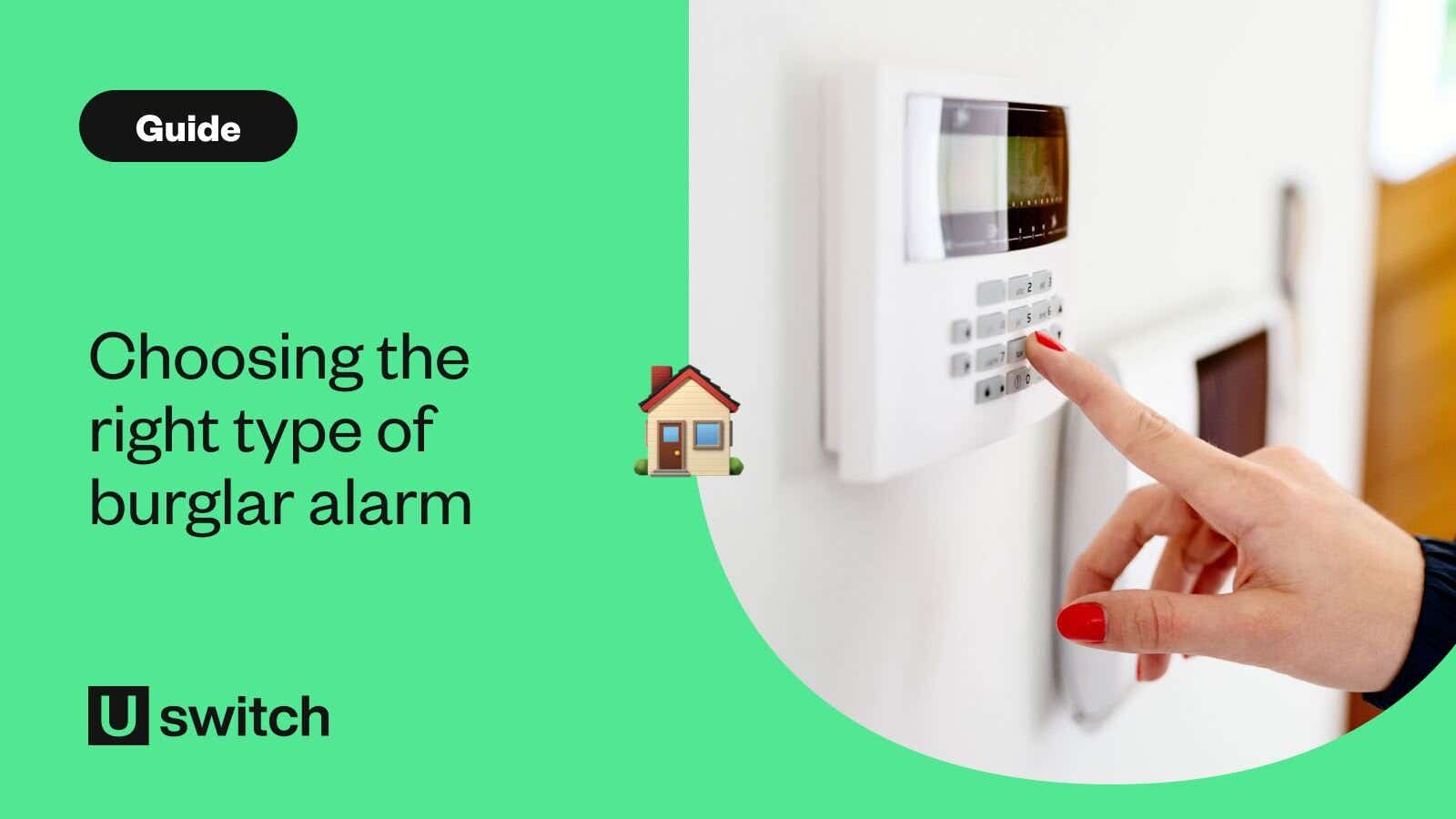Choosing the right type of burglar alarm


What is a burglar alarm?
A burglar alarm is a security device designed to detect unauthorised entry into your home. It usually triggers a siren or sends alerts to your phone or sometimes a monitoring centre. There are a number of things you can do to keep your home secure, and a burglar alarm is one of them. It's there to deter intruders before damage or theft happens.
Do I need a burglar alarm?
Many people want that extra feeling of safety, especially if they're away or out at night. Installing an alarm can be a strong deterrent; most burglars usually avoid homes with clear security systems. Plus, it can help to lower the cost of your home insurance.
But if you live somewhere remote, are super vigilant with locks, or rely on neighbourhood watches, you may choose not to install one. Still, in most cases, an alarm adds peace of mind you can’t really put a price on.
What are the different types of burglar alarms?
Motion detector alarms
These systems use sensors to detect movement in your home. Once movement is sensed, the alarm sounds. They’re effective indoors and often include pet-friendly models to minimise false alarms.
Monitored alarms
Monitored systems connect to a 24/7 response centre. If triggered, staff can check for breaks and alert emergency services if necessary. While more expensive, they offer the highest level of protection, especially for those frequently away from home.
Bells-only alarms
Simpler and cheaper, bells-only alarms only sound a siren when triggered. They don’t alert anyone beyond the immediate area, which means you’ll need to rely on neighbours or chance for help.
Glass-break sensor alarms
These detect the sound of breaking glass and trigger an alarm immediately. Great for ground-floor windows or conservatory areas, they add an extra layer of protection for vulnerable entry points.
Dummy alarms
Also known as decoy systems, dummy alarms mimic real ones at a lower cost. Although they may deter opportunistic burglars, some criminals might be able to spot the difference.
Smart security alarms
Smart alarms offer flexible, app-controlled systems with features like remote arming/disarming, real-time alerts and video integration. Many can integrate with other smart home devices like lights or cameras to make it look as though someone is home.
Wireless vs wired burglar alarms
Wireless alarms are quick to set up and easy to expand without rewiring your home. They rely on batteries and Wi‑Fi. Wired alarms are more reliable, don't require battery swaps and are harder to tamper with, but installation usually requires professional wiring and may be more disruptive.
How burglar alarms affect home insurance
Insurers often offer home insurance discounts for verified alarm systems, especially those approved by the National Approval Council for Security Systems (NACOSS) or similar UK standards. A claim after a burglary could be rejected if you don’t have a working alarm or fail to keep it in good repair. Learn more in our guide on things to avoid invalidating your home insurance and what to do after a burglary.
How to maintain home alarm systems
- Test regularly – Most alarms offer a regular test mode.
- Change batteries – For wireless systems, replace batteries annually or as alerts advise.
- Update your app and firmware – Keeps your system secure and functioning optimally.
- Keep contact info current – Ensure your insurer and monitoring centre hold up-to-date emergency contact details.
Alternative security measures to consider
- Security cameras and doorbell cams: Provide video evidence and serve as a visible deterrent.
- Security lighting: Motion-activated lights can scare off intruders.
- Window and door reinforcement: Adding locks or laminated glass adds another barrier.
- Neighbourhood watch schemes: Knowing your community is an extra set of eyes.
Compare home insurance quotes
See a range of home insurance quotes in just a few minutes when you compare with Uswitch
FAQs
How much do burglar alarms cost?
For a basic dummy setup it can be quite cheap, but for a fully monitored smart system it can be quite costly, with installation and monthly fees added for monitored options. According to CrimeRate, the average base cost for a burglar alarm in 2025 is £562, including equipment (£269) and installation (£293).
Do I need to hire someone to install a burglar alarm?
A simple wired or smart alarm may be DIY-friendly, but shore up reliability and warranty by choosing a professional installer for wired or monitored systems.
What types of alarms do home insurers look for?
Insurers favour systems approved by NACOSS or equivalent industry standards. Monitored or professionally installed wired systems typically offer the best premiums.
Are burglar alarms worth it?
Burglar alarms are worth it if you want protection and peace of mind. They deter intruders, can improve insurance terms and give you time to respond, especially in empty homes.